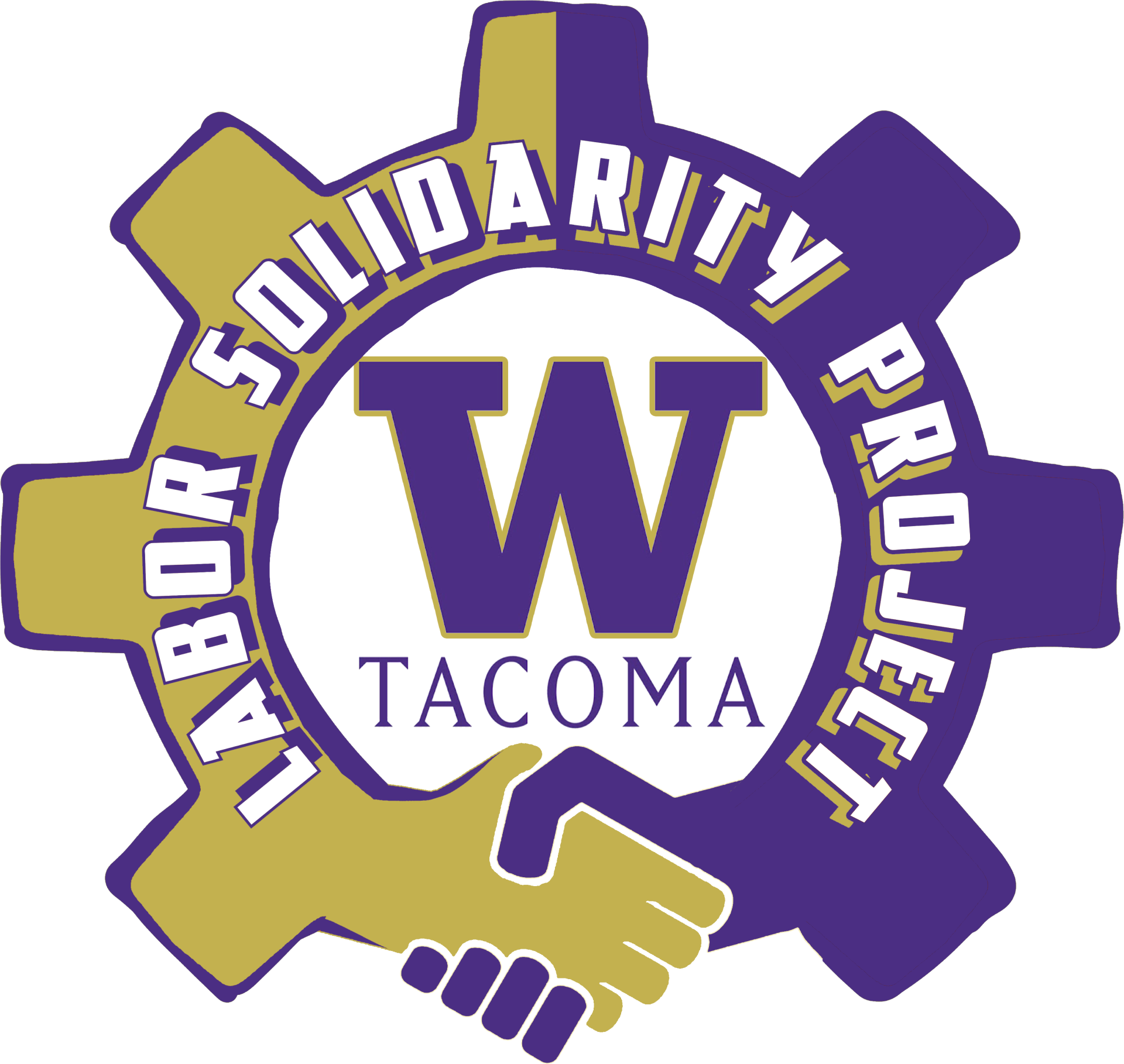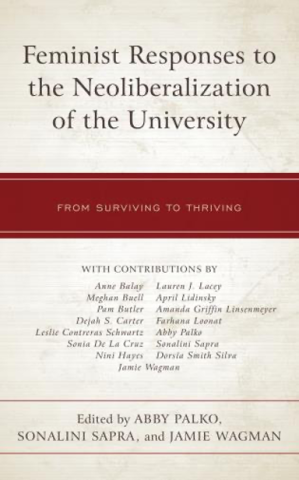Faculty News from the UW Tacoma Labor Solidarity Project
Thanks to funding from the Harry Bridges Center for Labor Studies, the 2019-2020 school year marked the beginning of the Labor Solidarity Project (LSP) on the University of Washington's Tacoma campus. The LSP sponsored faculty research projects, a seminar series, and more. Read below to learn more about these activities and recent accomplishments by UW Tacoma Labor Studies faculty.
(Re)Defining American Labor Seminar Series (Spring 2020 & Autumn 2020)
UW Tacoma faculty member Alex Miller led a 10-week seminar class titled (Re)Defining American Labor during Spring quarter. Each week, the seminar featured a different scholar, journalist or activist exploring a different facet of labor in the United States. The seminar included participation from students and the public. Due to the COVID pandemic, the seminar format shifted to Zoom with the sessions recorded. The weekly sessions can be freely accessed from LSP's YouTube Channel.
Alex Miller will be leading another 10-week online seminar for the Autumn Quarter that will again be open to public participation. Stay tuned for more information and how to sign up!
Faculty Research Projects
Margaret Griesse & Zaher Kmail - "Curriculum Development on Labor Studies and Research on Student Care Work at UW Tacoma
Curricular Development: Griesse and Kmail used funding from the LSP to develop labor content in UW Tacoma classes. In Winter 2020 and Spring 2020 the TWOMN 101 (Introduction to Women’s Studies) syllabus was revised to include a section on Reproductive Labor and Care Work. This provided a space within the classroom to examine global capitalism, the nature of reproductive work and its gendered, racialized and transnational formations by reading articles by Nancy Fraser, Eileen Boris, Rhacel Salazer Parrenas and Cynthia Enloe, among others. The class also engaged in developing a research project on care work, including development of a working definition of Care Work and a survey instrument, to help them understand their own community at UWT. In response to the COVID-19 pandemic, questions were added to the survey pertaining to changes caused by the virus and consequent quarantine. This project is also part of a broader curricular development project on labor and gender. Along with revision of the TWOMN 101 class, TEGL 340 (Intersections: Race, Gender and Sexuality in a Global Perspective) includes readings on the transnational component of women’s care work and the exploitation of women’s work in industry and the service sector. Additionally, TWOMN 345 (Women and Work in the United States) which has not been offered in almost a decade will be offered next academic year with a focus on Care work.
Research on Student Care Work at UW Tacoma: We have very little knowledge about student involvement in care work beyond anecdotal conversations; therefore In Spring 2020 a survey instrument on care work was sent out to UW Tacoma students via several list servers. For the purposes of this survey, care work was understood as personal interactions that provide for the physical, emotional and social needs of others or oneself, within or outside one’s living space. Care work can be paid or unpaid and include a wide range of activities such as housekeeping, cooking, shopping, bathing, yard work, paper work, and so on. Preliminary results of the survey show that the precarious balance of work, care and study that students had managed prior to COVID-19 has been disrupted by increased care responsibilities. Older students carry a heavier burden of care work than younger students and Latino and mixed-race students spend more time giving emotional support to others.
Anna Lovasz & Zaher Kmail - "Labor, Race, and Gender: Occupations, Incomes, Unions, and Family Status in Tacoma and Pierce County"
The goal of this project is to collect and present a wide range of statistics evaluating labor market inequalities in Pierce county, documenting trends over time and contrasting with King county, state, and national statistics. We are looking at various labor market outcomes: participation, employment, occupation, and earnings by gender and race, as well as the role of unions. As our research so far confirmed, such data is rare and not easily accessed, even though it is crucial to informed local policymaking. Our goal in this initial project is therefore to provide a preliminary set of statistics that highlights key local trends and issues, directions for further research, and important gaps in the available information that need to be addressed.
We hired a research assistant to help sort through potential data sources and document the statistics. We have been researching three main avenues: (1) readily available statistics on Pierce County published by various state and federal institutions (Washington State Employment Security Department, U.S. Department of Labor, U.S. Bureau of Labor Statistics, U.S. Census Bureau American FactFinder, Workforce Central), (2) accessing more detailed datasets and calculating statistics based on Census data sources (PUMS, ACS, LEHD), and (3) connecting with and gathering information from local actors who have insights into the most important local labor market issues and trends (Patty Rose , Secretary Treasurer of the Pierce County Central Labor Council; Josh Stovall of Workforce Central). In the remaining time left on the project, we plan to put together our findings in a single comprehensive report, and interpret the statistics in light of the key labor market issues and plans for future research topics aimed at addressing these.
Sonia De La Cruz - "Voice and Visibility: Video as an Activist Tool for Oregon's Home Care Workers"
This project aims at conducting interviews with home care workers in order to write an article for scholarly publication. Broadly, the work aims at understanding how video (or creative work) is used as a tool for advocacy and representation for underrepresented communities like home care workers. More specifically, this work will address the ways home care workers have used the video as part of their activist efforts to continue fighting for better working conditions and strengthen their union, while at the same time focusing on the various ways the video has provided home care workers a space through which their voices are heard and their experiences validated.
UW Tacoma Labor Studies Faculty News
Sonia De La Cruz, Co-Authored Book Chapter
Sonia De La Cruz, UW Tacoma assistant professor in Communication and Labor Solidarity Project faculty member, co-authored a chapter in the recently published book titled Laboring in Line With Our Values: Lessons Learned in the Struggle to Unionize (2020). In their chapter, De La Cruz, Hayes, and Sapra offer an intersectional feminist approach to understanding how women of color are part of "at least two subordinated groups that frequently pursue conflicting political agendas" (Crenshaw, 1991). The book chapter exposes this tension in the struggle to unionize as female faculty of color in academia, while staying committed to equity and social justice.
Reference:
De La Cruz, S., Hayes, N. & Sapra, S. (2020) Laboring in Line With Our Values: Lessons learned in the struggle to unionize. In A. Palko, S. Sapra & J. Wagman (Eds.). From Surviving to Thriving: Feminists Responses to the Neoliberalization of the University (pp. 83-108). The Rowman & Littlefield Publishing Group, Inc.
Michael Honey named as Harvard University's Radcliffe Institute Fellow, 2020-21
Michael Honey begins a year as a fellow at the Harvard University's Radcliffe Institute 2020-21. See full UW Tacoma press release here.
Michael has also been busy contributing labor-related commentary. Check out some of the latest:
- "Coronavirus and May Day Expose American's Working-class Struggles", Tacoma News Tribune, May 2, 2020
- "What Happened to Martin Luther King Jr.’s Dream of Economic Justice?", TIME Magazine, February 20, 2020

